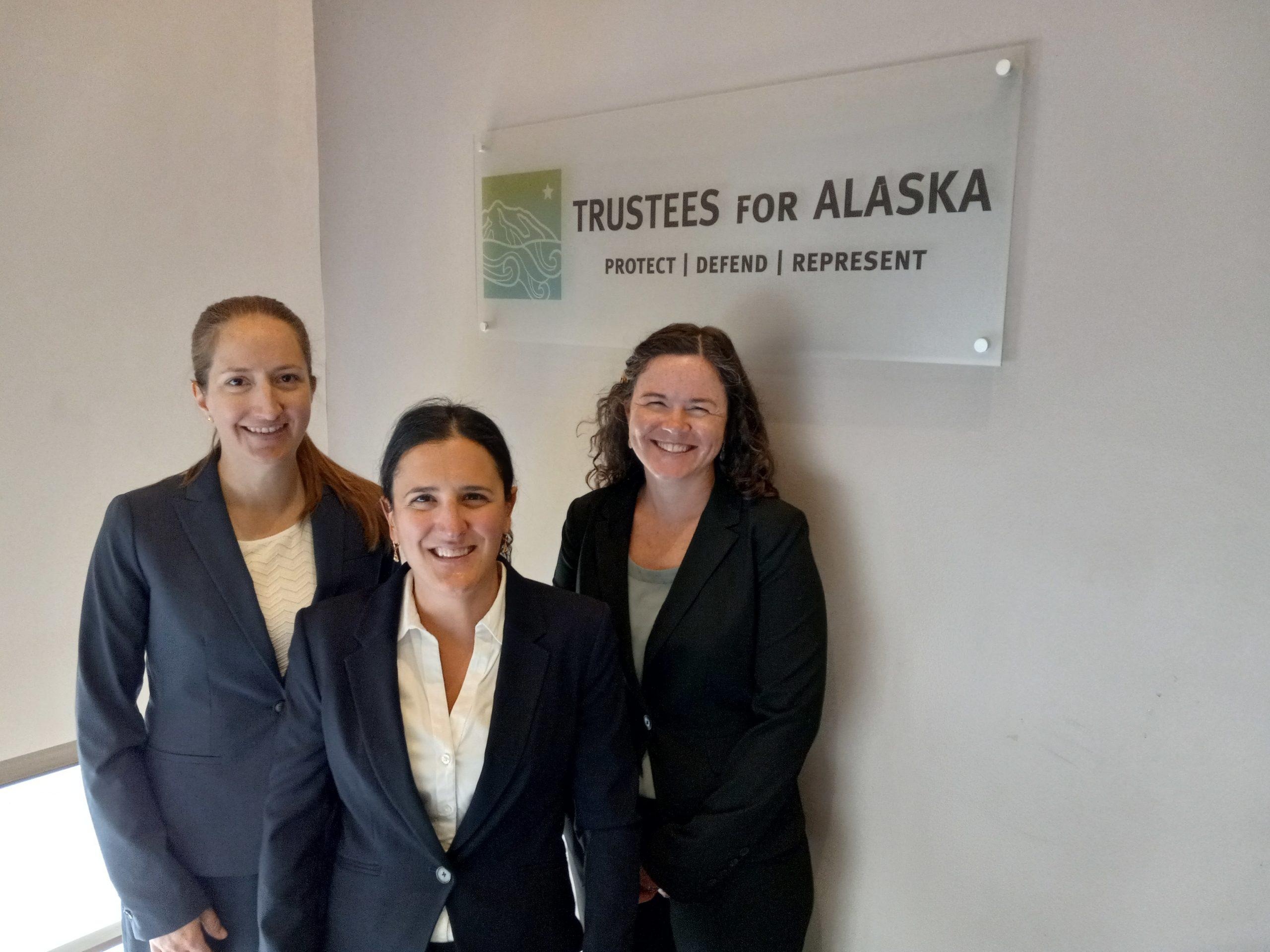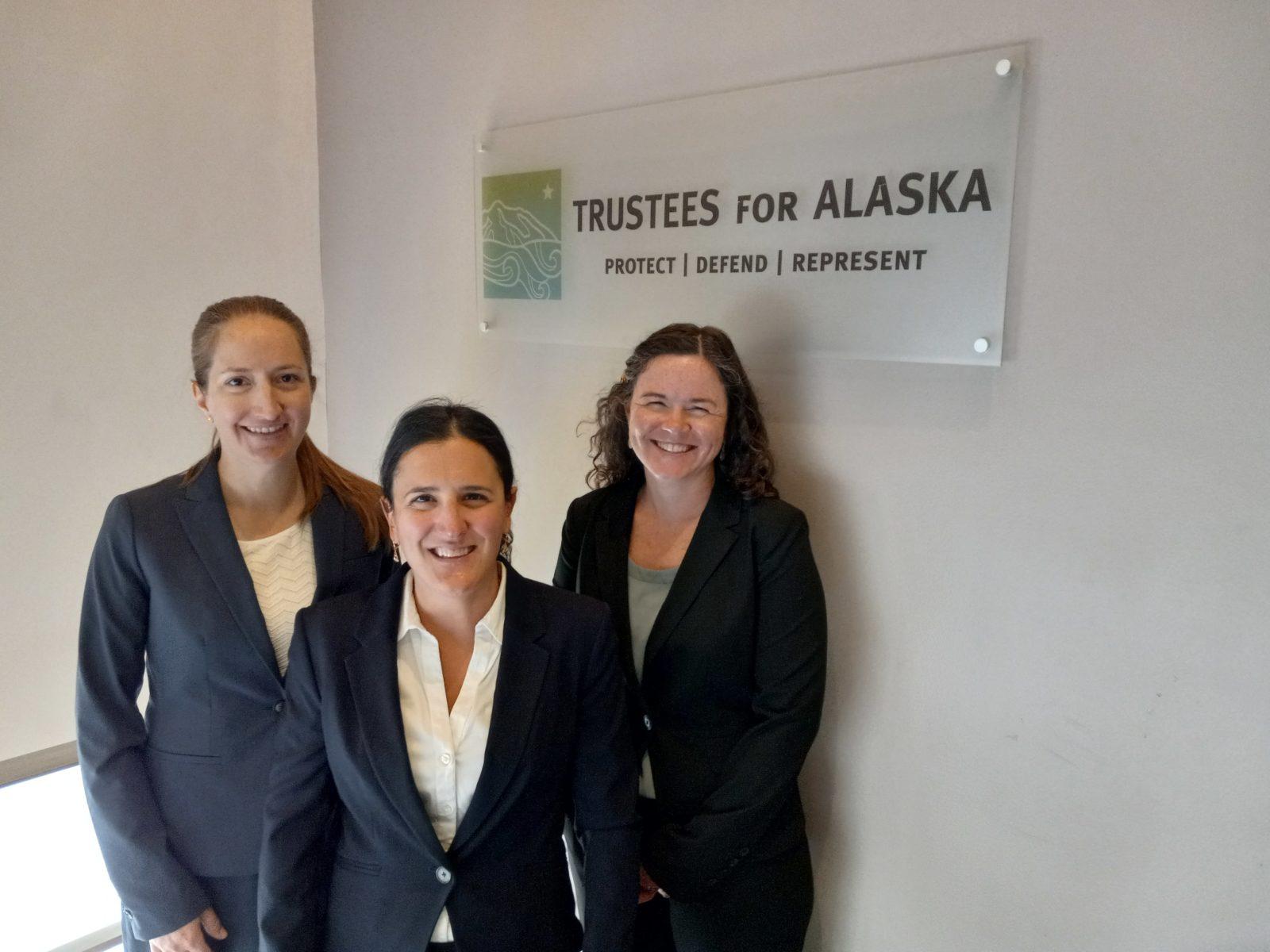
Calling out the ConocoPhillips’ Willow carbon bomb in court
We argued in court today in a lawsuit calling out an illegal Trump-era approval of the massive ConocoPhillips’ Willow Master Development Plan. The Biden administration—against some of its stated climate and public health goals—defended the approval in court, as did ConocoPhillips.
The lawsuit charges the Interior Department, U.S. Bureau of Land Management, and U.S. Fish and Wildlife Service with unlawfully authorizing the project despite known harms to people and wildlife.
Today we argued specifically about Clean Water Act issues, explained violations of the Endangered Species Act due to harms to polar bears, and clarified why our National Environmental Review Policy Act claims are not barred by a statute of limitations. We requested that the court void all the federal agencies’ approvals and permits for the project.

Stopping a public health threat
A lot has gone on in this case since we filed it in November 2020. Here’s the short review: Last winter we filed a preliminary injunction and restraining order in U.S. District Court. When the court ruled against us, we filed a motion for an emergency order stopping winter construction work in the U.S. Court of Appeals. At the time, ConocoPhillips’ planned winter gravel mining work posed an imminent threat to local people, land and water, and animals like polar bears.
The Ninth Circuit ordered a halt to construction of the project in February 2021. The court found it likely that the U.S. Bureau of Land Management had underestimated the impacts from Willow’s greenhouse gas emissions and that Willow was likely to irreparably harm the community of Nuiqsut. That court also found the statute of limitations likely did not apply to bar our NEPA claims from being heard.
Standing up in court
Our argument in court today centered on how multiple agencies approved the project despite huge gaps in the legally required information and explanations necessary for making those decisions.
The Fish and Wildlife Service’s Biological Opinion failed to sufficiently meet the requirements for assessing and addressing harm to polar bears under the Endangered Species Act, for example, and the Army Corps of Engineers authorized the project despite the lack of a specific mitigation plan for wetlands impacted by the entire footprint of the project, in violation of the Clean Water Act.
Willow trumps Biden’s climate promises & next steps
The U.S. Department of Justice unfortunately continued to defend Willow. The Biden administration’s decision to defend the case undermines its climate goals, fails to uphold its commitment to scientific integrity, ignores the flaws and broken laws leading up to and including the project approval, and disregards the health and other impacts to local Indigenous communities. We will continue to fight this case in court, and may see a decision from the district court as soon as the end of this month.
Trustees for Alaska represents Sovereign Iñupiat for a Living Arctic, Alaska Wilderness League, Defenders of Wildlife, Northern Alaska Environmental Center, Sierra Club, and The Wilderness Society in the case.


